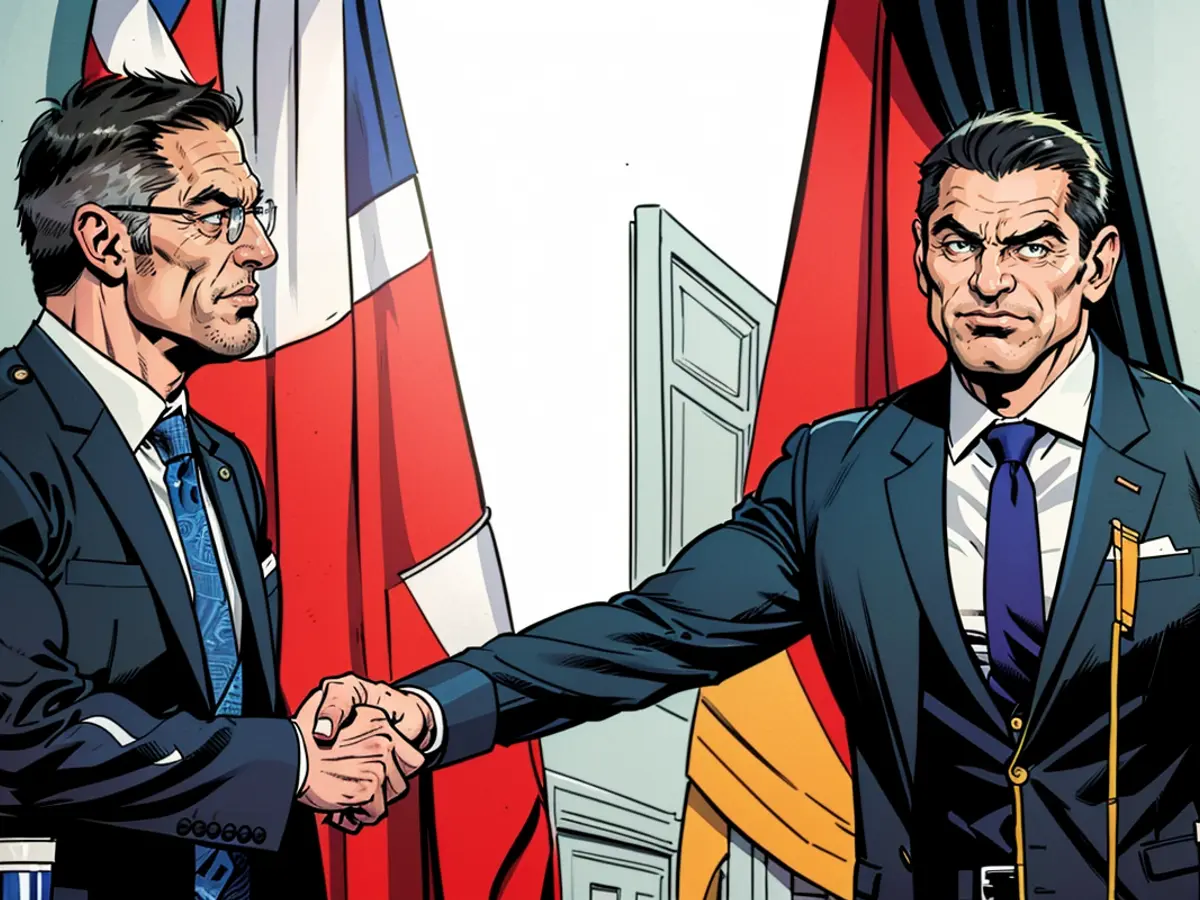Olaf Scholz and Keir Starmer are aiming to revitalize the German-British relationship through the signing of a brand-new accord. Both leaders held a joint press conference, where they expressed their aspirations to address the challenges facing the two nations and elevate their relationship to new heights.
At the Berlin Chancellery, Scholz celebrates the enduring partnership between Germany and the United Kingdom, characterized by shared values and a lasting camaraderie. He stressed his commitment to nurturing this cooperation for the benefit of their people, Europe, and the transatlantic region's security.
Starmer, conversely, heralded a new era in British-German relations, with the heart of the treaty being a revamped defense agreement. They further aim to collaborate more closely on battling illegal immigration, combating climate change, and boosting bilateral ties.
Scholz praised Starmer's intentions to rekindle relations with the EU, while emphasizing the importance of the United Kingdom as a vital player in addressing Europe's significant challenges. He welcomed the opportunity to reinforce this partnership.
Germany and the United Kingdom share a rich friendship and common interests, as stated in the joint statement. The treaty aims to reflect their pivotal roles as closely connected partners in Europe, with extensive bilateral cooperation in areas essential for their citizens.
Crucial aspects of their agreement include "political cooperation for peace and security," the growth of their economies, and industrial transformation. They also plan to collaborate more closely in countering irregular migration and law enforcement. Additionally, they will delve into topics like youth and education, energy security, climate and environmental policy, development cooperation, transport, technology, research, and innovation.
The agreement also expresses their unwavering support for Ukraine, currently under attack by Russia. They are determined to deter a more aggressive Russia, maintain their assistance to Ukraine, and fortify European defense. Through their military cooperation, they aspire to ensure that their deterrence and defense capabilities in the Euro-Atlantic region remain credible against any hazardous threat.
Starmer was welcomed with military honors upon his arrival in Germany, marking the first visit by the British head of government since his inauguration in early July. Once the bilateral cooperation agreement is finalized at the beginning of the new year, both governments will thoroughly review and endorse the comprehensive contract, covering areas like defense, economy, and climate change, reinforcing the strong partnership between Germany and the United Kingdom.
Additional Insights
The treaty focuses on several vital segments, in pursuit of a stronger partnership:
- Security Cooperation:
- Trinity House Agreement: This agreement invokes close collaboration on long-range precision strike capabilities, drones, and armored vehicles. It will be solidified into a legally-binding treaty.
- Lancaster House Treaties: The UK aims to upgrade and enhance the existing treaties with France, which will contribute to the broader UK-EU security partnership.
- Minilateral Initiatives: The UK is participating in initiatives like the Joint Expeditionary Force and Weimar Plus, which involve regular gatherings of defense ministers from the UK, France, Germany, Italy, Poland, and Spain, along with the EU’s High Representative. These initiatives prioritize support for Ukraine.
- Trade and Economic Relations:
- Better Trade Deal: The UK seeks a superior trade deal with the EU to bolster its stagnant economy, with the potential of enhancing the Trade and Cooperation Agreement negotiated by Boris Johnson’s government.
- SPS Agreement: The UK aims to negotiate a deal on Sanitary and Phytosanitary (SPS) measures, which could reduce border bureaucracy for importers and exporters of food, plants, and animals. However, this would necessitate dynamic alignment with EU rules and the European Court of Justice's involvement in dispute settlement.
- Closer EU-UK Relations:
- Resetting Relations: Starmer has vowed to restore the UK’s relationship with the EU, emphasizing the need for closer ties in defense, security, energy, trade, and the economy. This does not entail rejoining the EU, as the UK has already departed in 2020.
- Youth Mobility Program: The Labour government has rejected the EU’s proposed youth mobility program due to concerns relating to migration. This topic remains open for further discussions.
- Enhancing Bilateral Ties:
- Stronger Bilateral Relationships: Starmer’s government has prioritized revitalizing strong bilateral relationships with significant EU capitals, including Germany, with the objective of reestablishing trust and improving communication between the UK and EU institutions.
- Combating Illegal Migration:
- Justice and Home Affairs: The UK aims to collaborate more closely with EU institutions like Europol and Eurojust to combat unlawful migration. This includes enhancing access to key criminal databases such as the Schengen Information System, Prüm, and Eurodac.
These objectives strive to fortify the UK's relationship with the EU, focusing on significant aspects like security cooperation, trade improvements, and closer institutional ties, while also addressing particular concerns related to migration and border control.







